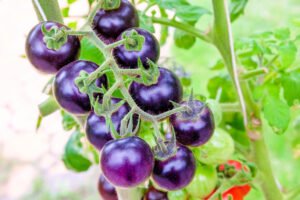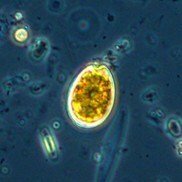Saturday, 7 February 2026
Thailand’s first animal-free dairy startup MUU secures strategic investment
The funding will fast-track MUU’s mission to revolutionise the dairy industry in Southeast Asia and beyond through precision fermentation technology MUU, Thailand’s pioneering animal-free dairy biotech startup, has announced a…

The funding will fast-track MUU’s mission to revolutionise the dairy industry in Southeast Asia and beyond through precision fermentation technology
MUU, Thailand’s pioneering animal-free dairy biotech startup, has announced a new round of strategic investment from A2D Ventures, Leave a Nest Japan, and a major Japanese food conglomerate. The funding will fast-track MUU’s mission to revolutionise the dairy industry in Southeast Asia and beyond through precision fermentation technology.
Founded by a diverse trio—an ex-Chevron engineer, a former TikTok marketing leader, and a PhD scientist with global research experience—MUU is addressing one of the food sector’s most pressing sustainability issues: conventional dairy production. The startup uses precision fermentation to produce bioidentical milk proteins that mirror the taste, texture, and nutritional profile of traditional dairy products, without involving animals.
MUU’s dairy proteins are not only lactose-, cholesterol-, hormone-, and antibiotic-free, but also cruelty-free and environmentally sustainable. According to the company, its production process uses up to 90 per cent less greenhouse gas emissions, land, and water than traditional dairy farming, positioning MUU as one of the most eco-friendly dairy alternatives available today.
In a significant move to advance its market strategy, MUU has signed a Memorandum of Understanding (MoU) with South Korea’s Lotte Fine Chemical. This partnership aims to open up new distribution channels and provide valuable market insights, especially in the Northeast Asian region. MUU has also received strong early traction, with sample requests coming in from leading coffee chains and food & beverage producers in Thailand, Singapore, and Japan.
The company’s proprietary four-stage process—strain development, fermentation, purification, and formulation—results in high-quality milk proteins that can be used in a range of applications, including coffee, ice cream, chocolate, and other dairy-based products. These proteins retain the functional and sensory characteristics of cow’s milk while eliminating its environmental and ethical drawbacks.
Technology
Australia Approves Commercial Release of GM Purple Tomato
Feb 06, 2026 | Australia
Detmold Group Reports Progress on Emissions Reduction, Circular Packaging Goals
Feb 05, 2026 | Australia
FAO on Balancing Climate Urgency and Food Safety in Emerging Agrifood Technologies
Feb 05, 2026 | Food Security
Food Testing
AFNOR International Eyes Global Food Safety Growth with HACCP Group Takeover
Feb 04, 2026 | Australia
Incheon National University researchers uncover hidden toxin risks during nutrient-starved algal blooms
Feb 02, 2026 | Food Safety and Testing
How audit-led approaches are reinforcing trust in retail food safety
Feb 02, 2026 | Food Safety and Testing
More Popular
Fertility Meets Farm-to-Table Dining with Launch of ‘The Fertility Table’ in India
Feb 06, 2026 | Company News
Australia Approves Commercial Release of GM Purple Tomato
Feb 06, 2026 | Australia
Alternative Proteins Could Add €111 Billion Annually to EU Economy by 2040, Study Finds
Feb 06, 2026 | Europe






